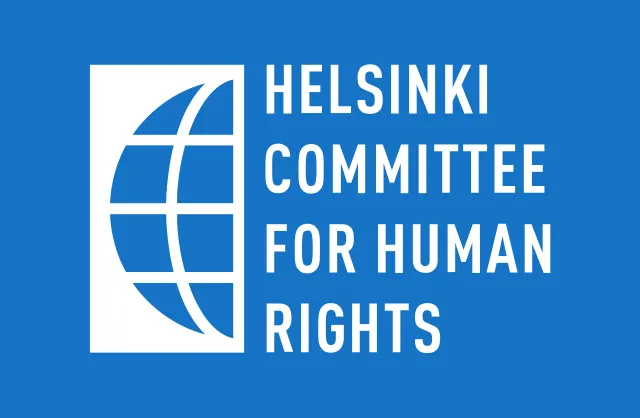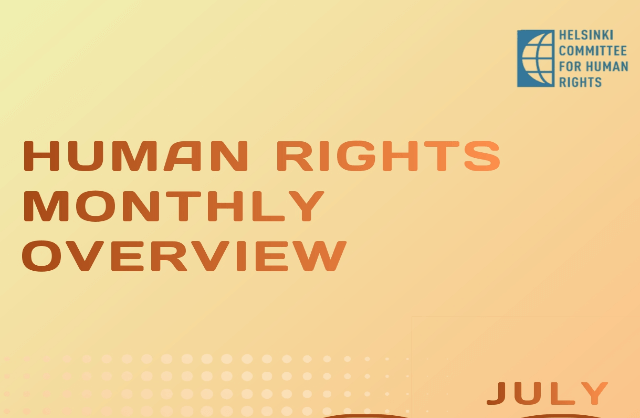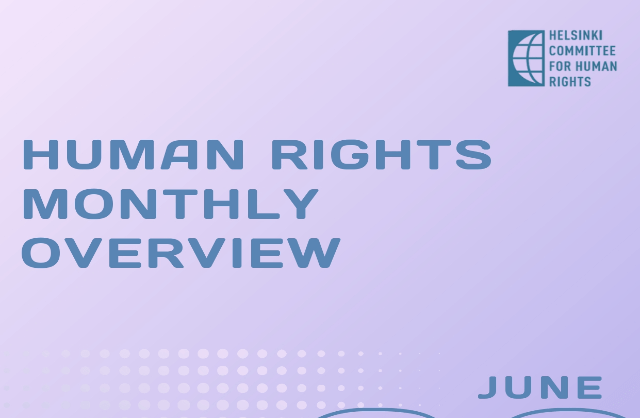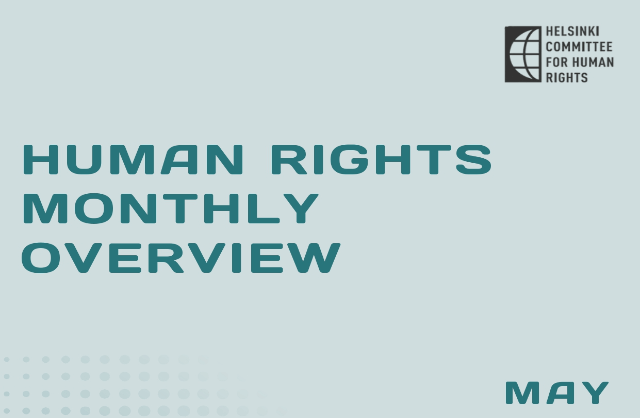The situation at the border crossings Gevgelija and Kumanovo for the period: 15.08.2016 – 28.08.2016
August 30, 2016

The two weeks report on the situation at the border crossings Gevgelija and Kumanovo includes the following topics: Available facilities and conditions at the camp and Institutional treatment.
Gevgelija
Available facilities and conditions
In the course of this period, the number of refugees oscillated between 127 and 137, as certain families were taken back to Greek territory at their own will, while certain groups got held up in the camp, most often due to problems with their health.
On 16 and 17 August, the NGO Legis organized a table tennis tournament, whereby certificates were presented to the refugees who participated and symbolic awards were provided for the winners.
NGOs are organizing courses in English and German for the refugees, which have stirred great interest.
The Red Cross sporadically organizes walks through the town for the children.
The hygiene in the camp has deteriorated because the janitors refuse to carry out their duties in sign of passive protest.
Institutional treatment
Over this period, around 160 refugees who had been caught down illegal roads were brought to the camp and after they were provided with healthcare and humanitarian aid, they were transported to Greek territory. On 19.08.2016, a group of 43 refugees originating from Syria were caught in the vicinity of Shtip, as they were moving down a regional road on foot. After they were provided with medical aid in the camp, those two groups were taken back to Greece. On 21.08.2016, in the vicinity of the tunnels near Demir Kapija, 14 refugees originating from Afghanistan were found in a vehicle without a driver. They were taken to the Shelter-Transit Center Gevgelija where they were sheltered and interviewed by officials. Towards the end of the day they were transported to Greece. On 23.08.2016, 57 refugees originating from Syria and Iraq, who had been caught in the vicinity of the village of Bansko, Strumica, were brought to the camp, and after a talk with the officials, they were transported to Greek territory. On 25.08.2016, 18 refugees caught in the vicinity of Suva Reka were brought to the camp and immediately sent to Greece. On 26.08.2016, 9 refugees originating from Bangladesh and Afghanistan were caught in the vicinity of Sveti Nikole in a smuggling attempt and later transported to Greece.
A young refugee from Afghanistan who recently gave birth in Gevgelija had initially submitted a request for asylum in the Republic of Macedonia together with her husband, but she gave up on a few days after.
Kumanovo
Available facilities and conditions
The number of refugees in the camp unofficially moves between 67 and 71, depending on the refugees who come and briefly stay in the camp, and then they proceed to try to cross the Serbian border down illegal roads again.
The area for sports and recreation which is being prepared for a certain period of time is in its closing stage.
The hygiene in the camp is a cause of great concern, considering the fact that the janitors are protesting due to the delay in their payment. Due to the bad hygiene, cases of scabies have been detected in several families and kids in the camp. The competent authorities have failed to take measures to deal with the contagious diseases, such as full disinfection of the containers where the refugees are accommodated and separation of the sick people.
The refugees complain of the bad quality of the food they are given. Although they asked for a chance to prepare their own food on several occasions, this option is still not available.
Institutional treatment
There is a high frequency of refugees originating from various countries (Morocco, Algeria, Bangladesh) in the camp, who have not been formally registered. Even more so, they are warned by the officials that they can be provided with medical aid, food and water in the camp, and then they have to leave the camp. On several occasions, several families and persons who arrived in the camp down illegal ways (sent back from the Serbian border, or arriving from the villages in the vicinity) were not allowed to enter the camp by the officials, for unknown reasons.
A woman originating from Syria, whose husband is in Germany, managed to be united with her husband after six months, and leave the camp in order to join her family in Germany. This is the first case of a family getting united involving refugees accommodated in the shelter-transit centers in the Republic of Macedonia.
From unofficial sources, in the vicinity of the village of Lojane, Kumanovo, there is a parallel informal camp where a large number of refugees are accommodated. The Red Cross and the remaining organizations (UNCHR and NGOs) sporadically distribute humanitarian aid to these groups, but there is no formally organized aid and support for them.
The situation in the shelter centers in the Republic of Macedonia
The number of refugees in the shelter centers in the Republic of Macedonia is not available.
Irregular migration
Five criminal and legal events related to migrants were registered in the bulletin of the Ministry of Interior over this period. Two of them took place on 18.08.2016, in one of which 40 refugees were discovered in a cargo vehicle, the driver of which had fled the crime scene. On 21.08.2016, in the vicinity of the tunnels near Demir Kapija, 14 refugees of different origin were found in a vehicle without a driver. After an informative talk they were sent to the STC Gevgelija. On 24.08.2016, also in the vicinity of the tunnels near Demir Kapija, a vehicle was found with 47 refugees originating from Syria, Iraq, Afghanistan and Pakistan, the driver of which was detained by the police. On 25.08.2016, in the vicinity of the village of Mezdra, Sv. Nikole, 9 refugees originating from Afghanistan were found in a cargo vehicle. Measures are being taken to discover the driver of the vehicle.

This report is made possible by the generous support of the Foundation Open Society Institute (FOSI) within the project „Improvement of the rights protection for migrants and asylum seekers in the Republic of Macedonia“. The contents are the responsibility of the Helsinki Committee for Human rights of the Republic of Macedonia and do not necessarily reflect the views of FOSI.


